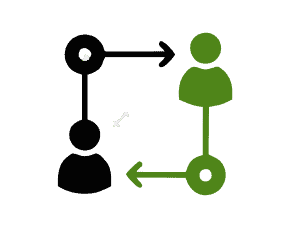Sharpening your facilitation skills

Sharpening you Facilitation Skills
Facilitation is the process of guiding a group through a discussion or activity to achieve a specific objective. It involves creating an inclusive and collaborative environment where all participants feel comfortable expressing their ideas. Effective facilitation is crucial for engaging participants and fostering meaningful and purpose-oriented conversations.
Facilitation is an art that involves creating an environment where every participant feels valued and contributes actively. By mastering facilitation techniques, one can enhance group dynamics and achieve more meaningful outcomes.
Key elements of effective facilitation

Active
listening
Listen to participants with the intent of understanding their perspectives.
Use verbal and non-verbal cues to show attentiveness, such as nodding, summarising, and asking clarifying questions.

Neutral
positioning
Remain neutral and unbiased, allowing diverse viewpoints to be explored.
Avoid expressing personal opinions or favouring one perspective over another.

Clarity of
purpose
Clearly communicate the objectives and goals of the discussion or activity.
Help participants understand the purpose and expected outcomes.

Creating a
safe space
Establish a safe and non-judgmental environment where participants feel comfortable sharing their thoughts.
Encourage openness and respect for diverse opinions.

Effective Communication
Use clear and concise language.
Encourage participants to express themselves openly and respectfully.
Techniques for Facilitating Participation
Brainstorming
Open ended questions
Visual aids
Small Group Discussions
Role plays
Other facilitation tips
Manage participation in the group
Gently call out the silent ones “we have not heard from you yet. Would you like to share a perspective on this topic?
Respectfully ‘pull the microphone’ away from the ones monopolising the conversation: “I know you have a really important point to make on this, I just want to make sure we also hear from some of the others. Will come back to you in a minute.”
Sharpen your skills
The best way to learn how to facilitate is to “JUST DO IT”. You do not need to be a subject matter expert on the focus area. The knowledge and expertise on the topic are drawn from Team members.
Practice self-awareness – ask for feedback from the participants after the workshop. Watch and learn from others, read books and articles or watch videos. Jump onto google and sharpen your facilitator “pencil”.
Manage participation in the group
Make maximum use of flip charts in meetings and workshops, or their equivalents in virtual workshops (e.g. Mural). Writing down team members’ thoughts helps them build on each other’s ideas. It also helps each team member to be visually reminded about their contributions to the team’s work. Here are some tips on using flipcharts.

